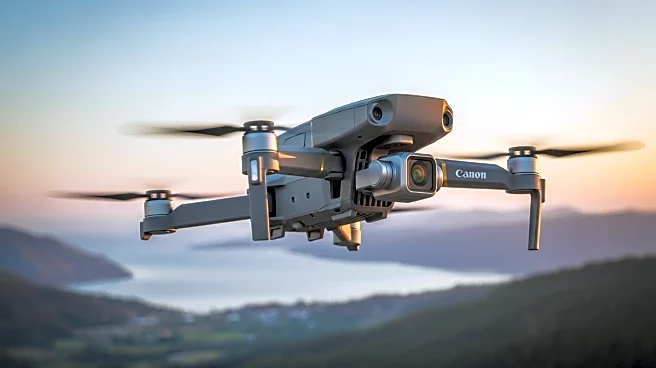What's Happening?
The DJI Mini 4K drone has become increasingly popular due to its lightweight design and affordability, making it accessible for recreational users who wish to avoid the complexities of FAA registration. Weighing just 249 grams, the drone falls below the 250-gram threshold that typically necessitates registration, allowing users to fly it without additional bureaucratic steps. Currently priced at $249 on Amazon, down from its original $299, the DJI Mini 4K is DJI's most affordable model to date. Despite its small size, the drone is equipped with a 4K Ultra HD camera mounted on a 3-axis gimbal, ensuring high-quality, stable footage. It is designed to withstand winds up to 38kph and can fly at altitudes of up to 4,000 meters. The drone's battery life allows for 31 minutes of flight time, with options to purchase additional batteries for extended use. Features such as one-tap takeoff and landing, GPS return home, and Intelligent QuickShots mode make it user-friendly, even for beginners.
Why It's Important?
The DJI Mini 4K drone's affordability and ease of use open up aerial photography to a broader audience, potentially democratizing the field. By eliminating the need for FAA registration, the drone reduces barriers for hobbyists and amateur photographers, allowing them to explore creative pursuits without regulatory hurdles. This accessibility could lead to increased interest and innovation in drone photography and videography, impacting industries such as real estate, tourism, and media. Additionally, the drone's advanced features at a low price point may pressure competitors to offer similar capabilities, potentially driving down costs and increasing technological advancements in the consumer drone market.
What's Next?
As the DJI Mini 4K continues to gain popularity, it is likely that other drone manufacturers will respond by developing similar lightweight models that do not require FAA registration. This could lead to a more competitive market, with companies striving to offer better features at lower prices. Additionally, as more consumers adopt drones for recreational use, there may be increased discussions around drone regulations and safety, potentially influencing future policy decisions. The growing interest in drones could also spur advancements in related technologies, such as battery life and camera quality, further enhancing the capabilities of consumer drones.











